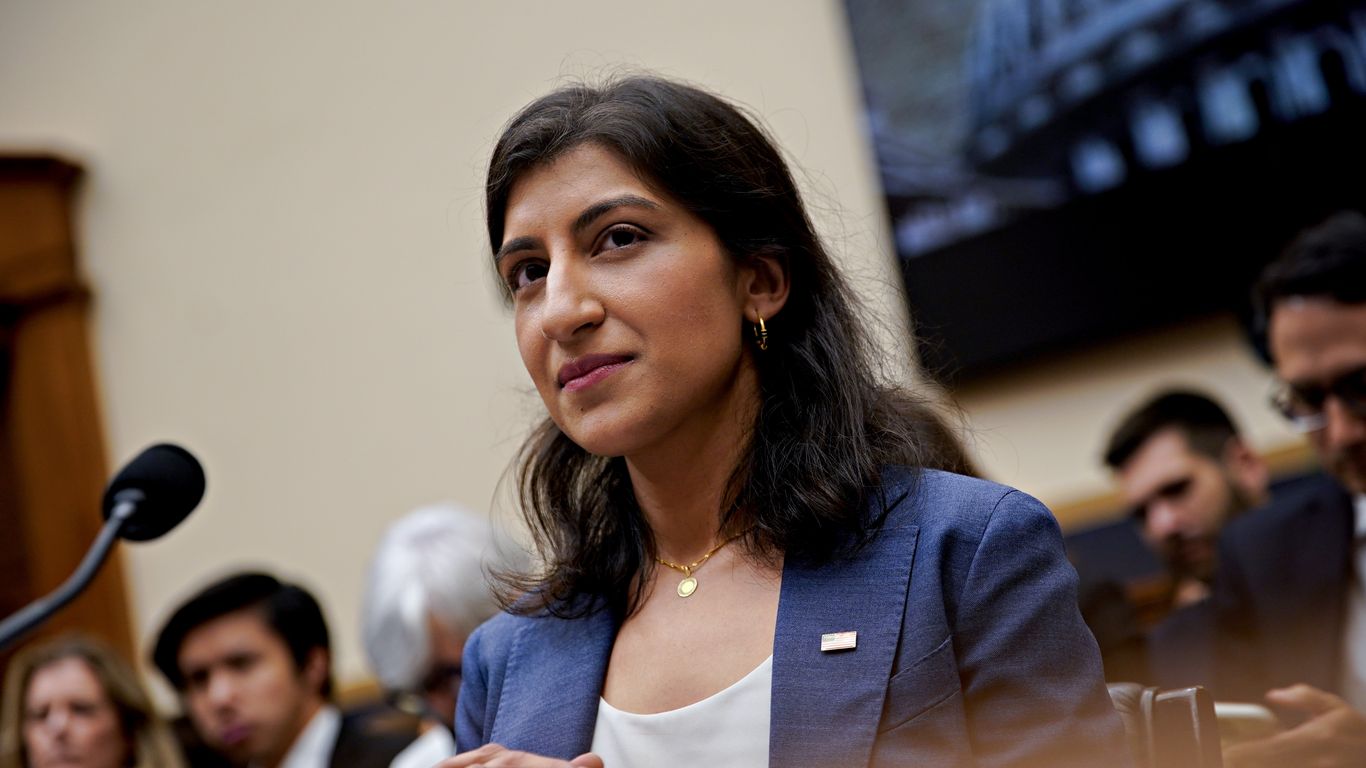OpenAI's ChatGPT: FTC Probe Deepens AI Regulation Debate

Discover more detailed and exciting information on our website. Click the link below to start your adventure: Visit Best Website. Don't miss out!
Table of Contents
OpenAI's ChatGPT: FTC Probe Deepens AI Regulation Debate
The burgeoning world of artificial intelligence (AI) is facing increased scrutiny, with OpenAI's popular chatbot, ChatGPT, squarely in the crosshairs. A deepening Federal Trade Commission (FTC) probe into OpenAI is igniting a crucial debate about the need for robust AI regulation and its potential impact on innovation. This investigation isn't just about ChatGPT; it's a landmark case that could shape the future of AI development and deployment globally.
FTC Investigation: Unpacking the Concerns
The FTC's investigation into OpenAI, launched earlier this year, focuses on potential violations of consumer protection laws. Specifically, concerns center around the accuracy and potential biases embedded within ChatGPT's responses, alongside issues of data privacy and security. The agency is examining whether OpenAI adequately addressed the risks associated with releasing a powerful language model capable of generating misleading or harmful content.
This investigation is significant because it marks one of the first major regulatory actions against a leading AI company. The outcome could set precedents for how other AI developers navigate legal and ethical responsibilities.
Key Areas of FTC Scrutiny:
- Data Privacy: How OpenAI collects, uses, and protects user data fed into ChatGPT is under intense scrutiny. The FTC is likely examining whether OpenAI's data practices comply with existing privacy regulations.
- Algorithmic Bias: Concerns exist about potential biases in ChatGPT's responses, reflecting biases present in the vast dataset it was trained on. The FTC is investigating whether these biases unfairly discriminate against certain groups.
- Misinformation and Disinformation: ChatGPT's ability to generate realistic-sounding yet false information is a major worry. The FTC is exploring OpenAI's efforts to mitigate the risks of misinformation spread through the platform.
- Consumer Protection: The broader question is whether OpenAI adequately warned consumers about the limitations and potential harms associated with using ChatGPT.
The Broader AI Regulation Debate:
The FTC's action on ChatGPT is fueling a wider debate about the need for comprehensive AI regulation. While many acknowledge the transformative potential of AI, there's growing concern about its potential for misuse and harm.
Arguments for Stronger AI Regulation:
- Protecting Consumers: Regulation can help shield consumers from misleading or harmful AI-generated content.
- Mitigating Bias: Regulatory oversight can help ensure AI systems are developed and deployed in a fair and equitable manner.
- Preventing Misinformation: Stronger regulations could limit the spread of AI-generated misinformation and disinformation.
Arguments Against Overly Restrictive Regulation:
- Stifling Innovation: Some argue that overly stringent regulations could stifle innovation and hinder the development of beneficial AI applications.
- Defining "Harm": The challenge lies in defining and measuring harm caused by AI, a complex issue with no easy answers.
- International Coordination: Effective AI regulation requires international cooperation, which presents a significant challenge.
The Future of AI and Regulation:
The FTC's investigation into OpenAI and ChatGPT is a watershed moment. The outcome will significantly influence the future landscape of AI regulation, not only in the US but globally. We can expect to see increased regulatory scrutiny of AI technologies, coupled with ongoing debates about the best approach to balance innovation with consumer protection. This ongoing situation demands close attention from businesses, policymakers, and the public alike. Stay tuned for further updates as this crucial case unfolds.
Learn more about AI regulations and their impact on the tech industry by subscribing to our newsletter below! (This is an example CTA; adapt as needed)

Thank you for visiting our website wich cover about OpenAI's ChatGPT: FTC Probe Deepens AI Regulation Debate. We hope the information provided has been useful to you. Feel free to contact us if you have any questions or need further assistance. See you next time and dont miss to bookmark.
Featured Posts
-
 Barack Obama Y Jennifer Aniston Un Mensaje Enigmatico Descifrado
Jan 26, 2025
Barack Obama Y Jennifer Aniston Un Mensaje Enigmatico Descifrado
Jan 26, 2025 -
 Target Reverses Course On Dei Initiatives
Jan 26, 2025
Target Reverses Course On Dei Initiatives
Jan 26, 2025 -
 Understanding Trumps Initial Executive Orders What They Meant
Jan 26, 2025
Understanding Trumps Initial Executive Orders What They Meant
Jan 26, 2025 -
 Navigating Public Discourse In The Age Of Trump 2 0
Jan 26, 2025
Navigating Public Discourse In The Age Of Trump 2 0
Jan 26, 2025 -
 Is A 60 M Center Headed To The Lakers New Report
Jan 26, 2025
Is A 60 M Center Headed To The Lakers New Report
Jan 26, 2025
 Man Shot Dead In Sweden Following Koran Burning Authorities Investigating
Man Shot Dead In Sweden Following Koran Burning Authorities Investigating
 6 Nations 2025 Horaires Chaines De Television Et Arbitres Designes
6 Nations 2025 Horaires Chaines De Television Et Arbitres Designes
 What The Syrian Secret Police Observed During The Regimes Downfall
What The Syrian Secret Police Observed During The Regimes Downfall